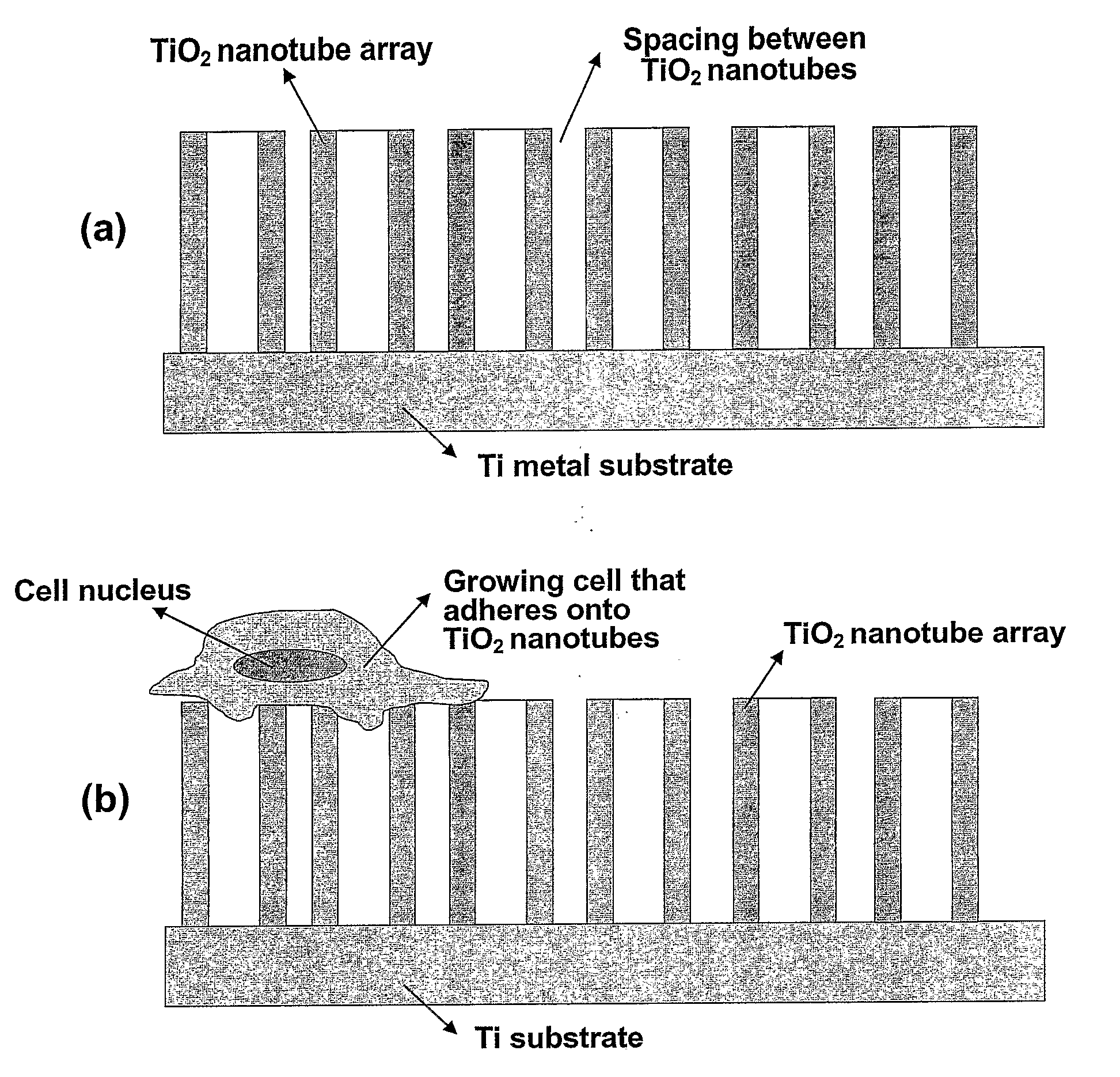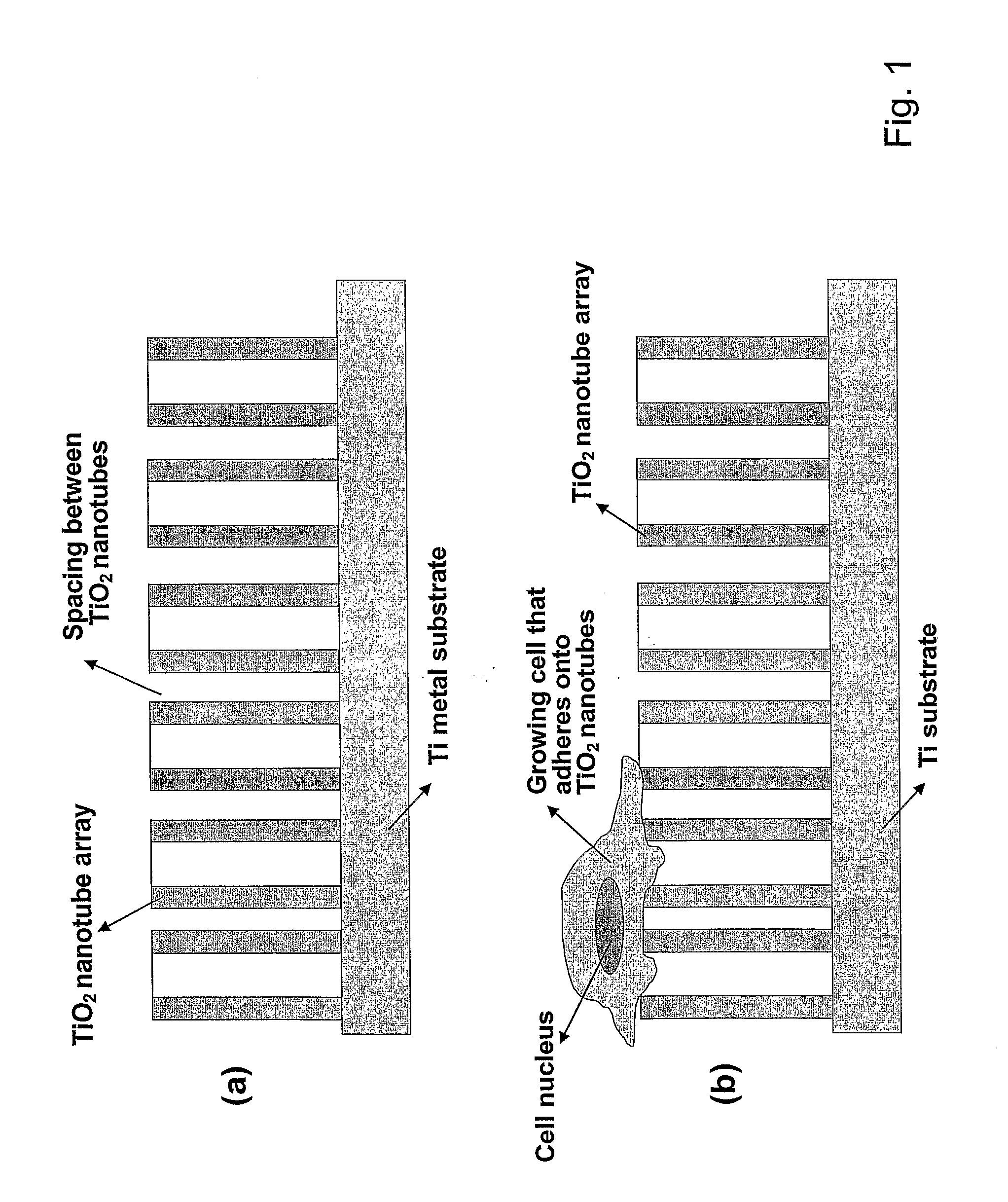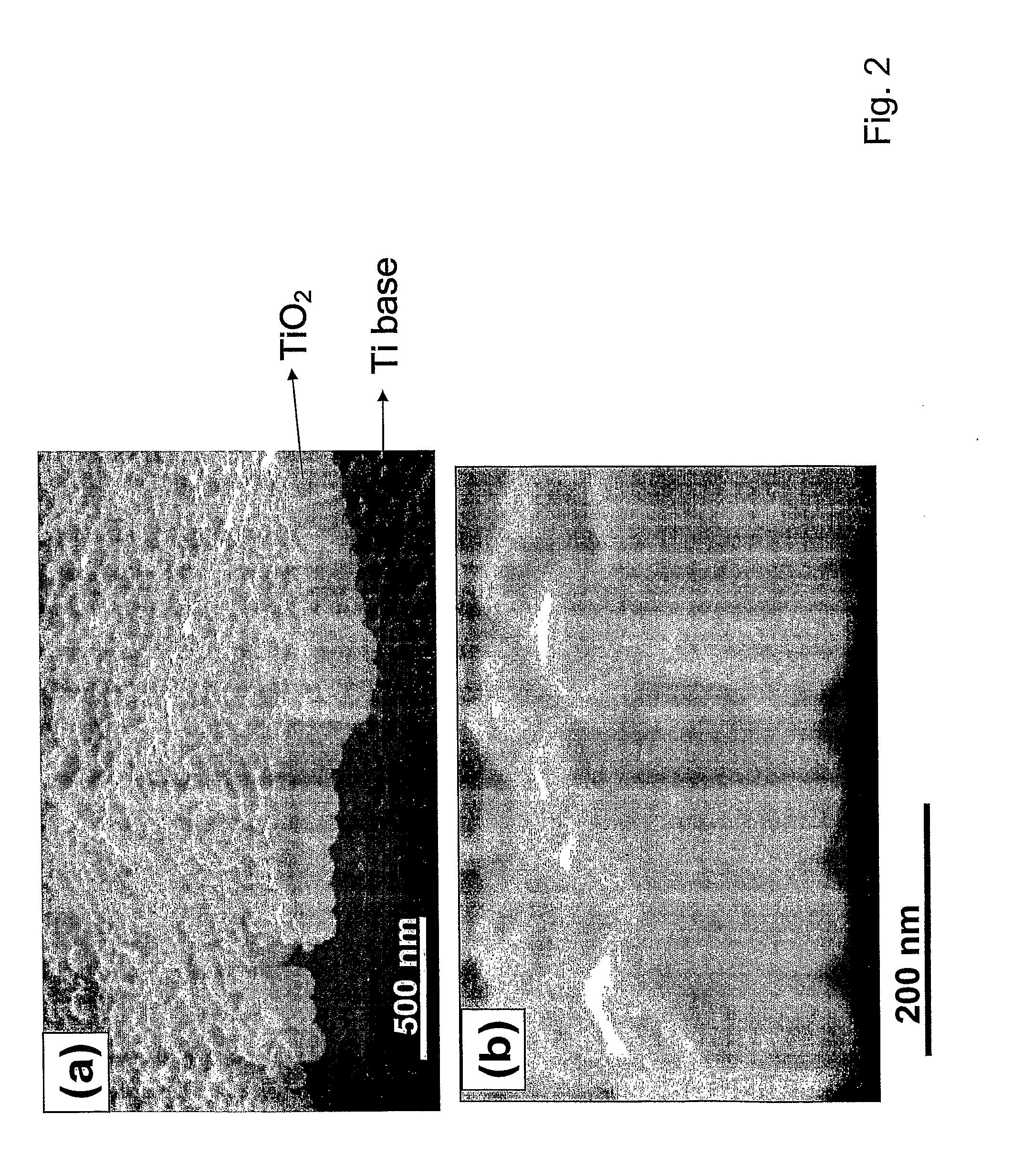Compositions comprising nanostructures for cell, tissue and artificial organ growth, and methods for making and using same
- Summary
- Abstract
- Description
- Claims
- Application Information
AI Technical Summary
Benefits of technology
Problems solved by technology
Method used
Image
Examples
example 1
Bone- and Cell-Growth Promoting Nanostructures
[0067]An example of an exemplary bone- and cell-growth promoting nanostructure of the invention is shown in FIGS. 2 and 3. These exemplary structures of the invention are vertically aligned, biocompatible TiO2 with a typical dimension of the hollow nanotubes as shown as being approximately (about) 100 nm outer diameter and approximately 70 nm inner diameter, with approximately 15 nm in wall thickness, and approximately 250 nm in height.
[0068]The exemplary TiO2 nanotube array structure shown in FIG. 1-3 was fabricated by an exemplary anodization technique using a Ti sheet (0.25 mm thick, 99.5% purity) which is electrochemically processed in a 0.5% HF solution at 20 V for 30 min at room temperature. A platinum electrode (thickness: 0.1 mm, purity: 99.99%) was used as the cathode. To crystallize the deposited amorphous-structured TiO2 nanotubes into the desired anatase phase, the specimens were heat-treated at 500° C. for 2 hrs. In one aspe...
example 2
Nanofiber-Like or Nanoribbon-Like Structures
[0071]On exposure of the TiO2 nanotubes to a 5 mole NaOH solution at approximately 60° C. for 60 minutes, it has been found that an additional, extremely fine, and predominantly nanofiber-like or nanoribbon-like structure of sodium titanate compound is introduced on the very top of the TiO2 nanotubes as shown in FIG. 5(a). In this example, preferential occurrence of nanofibers at the top of nanotubes is presumably because of the nanotube contact with NaOH solution above and also possibly due to the surface-tension-related difficulty of NaOH solution getting into nanopores within and in-between TiO2 nanotubes, as illustrated in FIG. 5(b). Compositional analysis by EDXA (energy dispersive x-ray analysis) in SEM confirms the presence of Na, Ti and O after the exposure of TiO2 nanotubes to NaOH. The sodium titanate so introduced exhibits an extremely fine-scale nanofiber configuration with a dimension of approximately 8 nm in average diameter ...
example 3
Osteoblast Cell Growth on Nanotubes of the Invention
[0076]In order to estimate the effect of having an extremely fine nanostructure such as the vertically aligned TiO2 nanotubes on cell growth behavior, an osteoblast cell growth on TiO2 nanotubes was performed. The results demonstrate (indicate) that the introduction of nanostructure significantly improves bioactivity of implant and enhances osteoblast adhesion and growth. An adhesion of anchorage-dependent cells such as osteoblasts is a necessary prerequisite to subsequent cell functions such as synthesis of extracellular matrix proteins, and formation of mineral deposits. In general, many types of cells beside the osteoblast cells remain healthy and grow fast if they are well-adhered onto a substrate surface, particularly a nanostructure surface of this invention, while the cells not adhering to the surface tend to stop growing.
[0077]All the experimental specimens (0.5×0.5 cm2) used for cell adhesion assays were sterilized by auto...
PUM
| Property | Measurement | Unit |
|---|---|---|
| Temperature | aaaaa | aaaaa |
| Temperature | aaaaa | aaaaa |
| Temperature | aaaaa | aaaaa |
Abstract
Description
Claims
Application Information
 Login to View More
Login to View More - R&D
- Intellectual Property
- Life Sciences
- Materials
- Tech Scout
- Unparalleled Data Quality
- Higher Quality Content
- 60% Fewer Hallucinations
Browse by: Latest US Patents, China's latest patents, Technical Efficacy Thesaurus, Application Domain, Technology Topic, Popular Technical Reports.
© 2025 PatSnap. All rights reserved.Legal|Privacy policy|Modern Slavery Act Transparency Statement|Sitemap|About US| Contact US: help@patsnap.com



